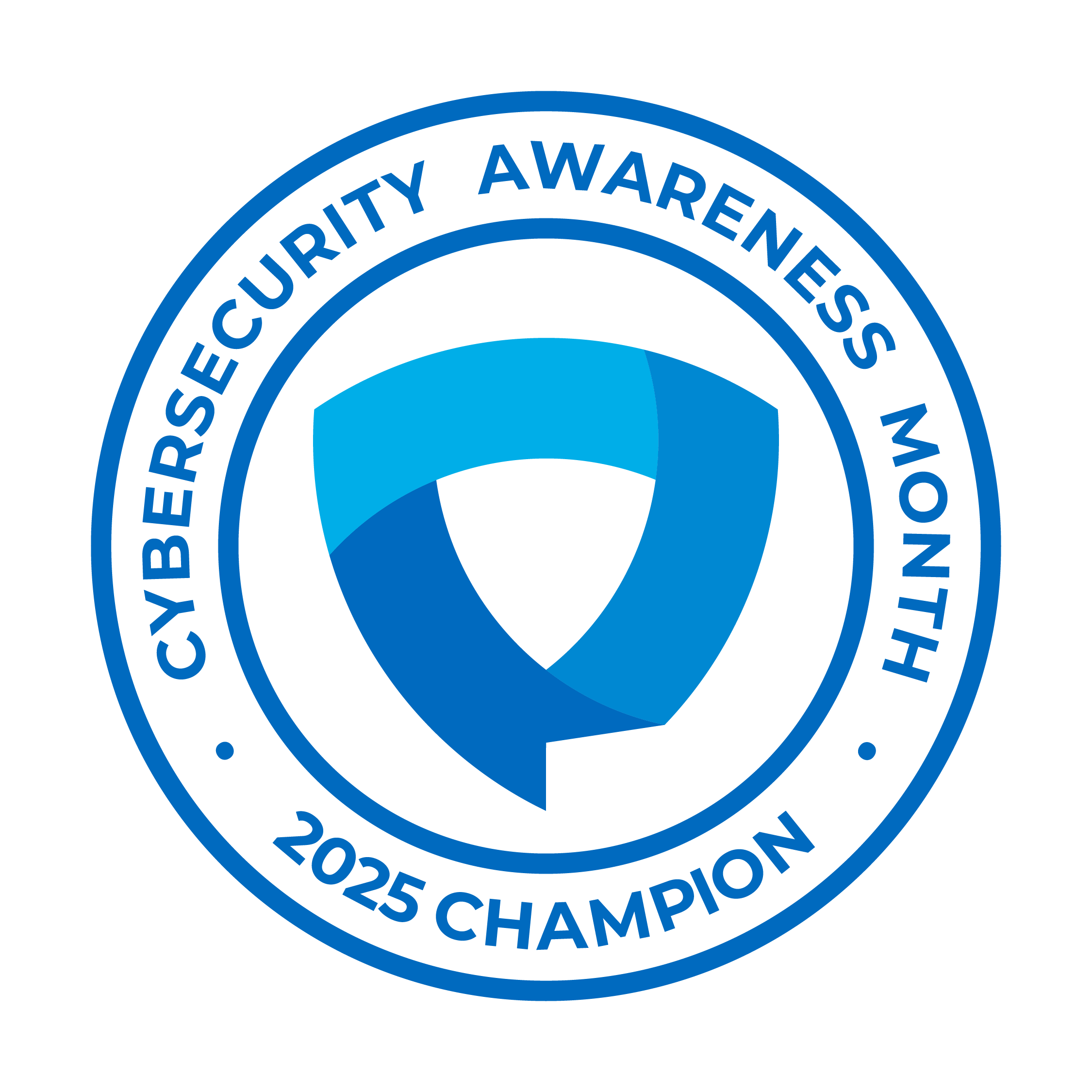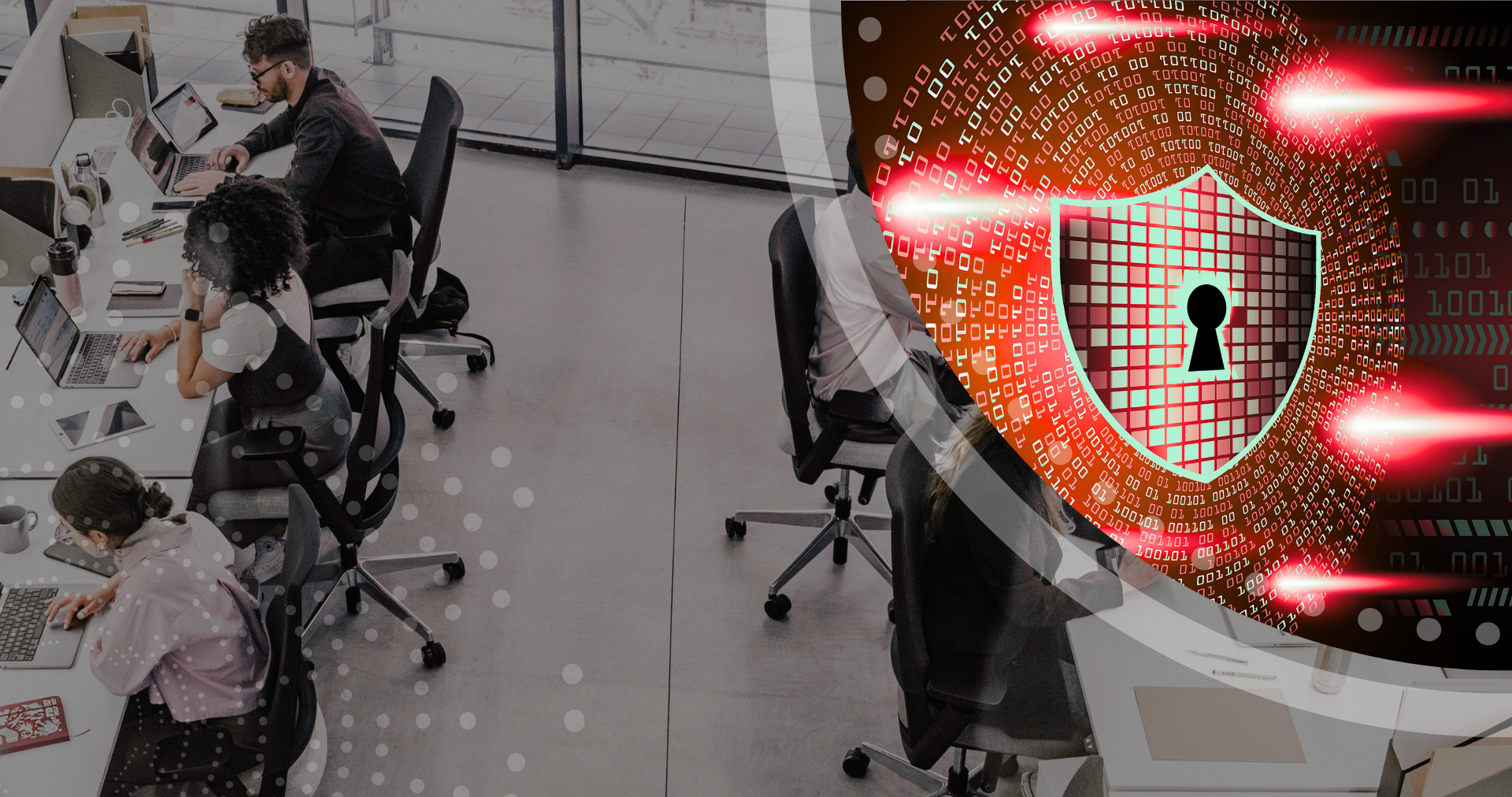Introduction: Why Cybersecurity Matters for SMBs
Cyberattacks aren’t just a big-business problem anymore. Small and mid-sized businesses (SMBs) are increasingly in the crosshairs because cybercriminals know many operate with limited resources and overstretched IT teams.
In fact, research shows that about 31% of SMBs have been victims of cyberattacks such as ransomware, phishing or data breaches. [Source: Microsoft]
One successful attack can lead to downtime, data loss, reputational damage, and serious financial consequences. The good news? Building a strong cybersecurity foundation doesn’t require a massive IT department; just the right strategy, tools, and trusted partners.
1. Understand the Risks
Every SMB faces unique risks, but these threats are among the most common:
- Phishing and social engineering: deceptive emails or texts trick employees into revealing credentials or transferring funds.
- Ransomware: malicious software locks your systems until a ransom is paid. For example, 82% of ransomware attacks in 2021 were directed at companies with fewer than 1,000 employees. [Source: SentinelOne]
- Data breaches: sensitive customer, employee or financial data becomes exposed.
- Weak or reused passwords: one compromised password can grant access to multiple systems.
- Unpatched software: outdated applications leave security holes that attackers exploit.
- To give more scale: nearly 46% of all cyber breaches impacted businesses with fewer than 1,000 employees. [Source: StrongDM]
2. Build a Strong Cybersecurity Foundation
Start by covering the basics; these are your cybersecurity must-haves:
- Strong passwords + multi-factor authentication (MFA): Prevents attackers from easily accessing accounts. Only around 14% of SMBs said they considered their cybersecurity posture “highly effective.” [Source: NinjaOne]
- System and software updates: Regular patching eliminates known vulnerabilities.
- Endpoint protection and antivirus: Defend every device on your network.
- Secure Wi-Fi and firewalls: Protect your internal network from unauthorized access.
- Data backups: Ensure backups are automated, encrypted, and tested regularly.
- Notably, many SMBs are underprepared: one survey found that 83% of SMBs are not prepared to recover from the financial damages of a cyber-attack. [Source: NinjaOne]
3. Empower Your Employees
Your people are your first line of defense. Make cybersecurity part of your company culture.
- Provide ongoing cybersecurity awareness training for all employees. Only 42% of SMBs provide regular employee security training. [Source: CrowdStrike]
- Teach staff how to identify phishing attempts and suspicious behavior.
- Limit access based on job roles: employees should only have access to what they need.
- Create clear policies for password management, data sharing, and remote work.
- Given that many SMBs acknowledge the threat but still struggle, with 94% saying they’re aware of cyber threats yet few having full protections. [Source: CrowdStrike]
4. Secure Devices, Networks, and Remote Work
The modern workforce is mobile and connected: make sure your cybersecurity keeps up.
- Use firewalls and VPNs to secure remote access.
- Encrypt laptops, mobile devices, and removable media.
- Enforce device management policies to handle lost or stolen equipment.
- Segment your network so guest or IoT devices don’t pose risks to critical systems.
- Plus, the risk isn’t theoretical: one source reports that nearly 1 in 5 SMBs say a successful cyberattack could force them to close. [Source: Cloud Security Alliance]
5. Be Ready for Incidents
Even the best defenses can’t guarantee 100% protection. A solid incident response plan minimizes damage and downtime.
- Define roles and responsibilities in the event of a breach.
- Know who to contact: internal leads, vendors, and legal/compliance teams.
- Test your backups and restoration process regularly.
- Partner with an IT or cybersecurity provider who offers 24/7 monitoring and response.
- One sobering fact: some SMBs report that they would go under with losses of $50,000 or less following a cyberattack. [Source: Cloud Security Alliance]
6. Partner with a Cybersecurity Expert
Managing cybersecurity in-house can stretch resources thin. Partnering with a managed IT and cybersecurity provider gives your SMB access to enterprise-level protection, including:
- Continuous monitoring and threat detection
- Proactive patching and system hardening
- Security awareness training for employees
- Backup and disaster recovery solutions
- Compliance guidance and reporting
These services allow you to focus on running your business while experts safeguard your systems and data. Research shows that 70% of SMBs rely on outside experts to guide security decisions. [Source: CrowdStrike]
Final Thoughts
Cybersecurity isn’t a one-time project… it’s a long-term commitment to protecting your business, employees, and customers. By implementing the right best practices and partnering with the right experts, SMBs can achieve enterprise-grade protection without enterprise complexity.
Ready to Strengthen Your Cybersecurity?
Identify vulnerabilities before attackers do.
Schedule an IT Security Assessment or call the Onward team at 312-795-9500 .

National Cybersecurity Awareness Month
Onward Technologies is proud to be a National Cybersecurity Awareness Month Champion!
This October, we’re joining organizations nationwide to promote cybersecurity awareness, share best practices, and help businesses and individuals stay safe online. Cybersecurity is everyone’s responsibility — let’s work together to build a safer digital world.




